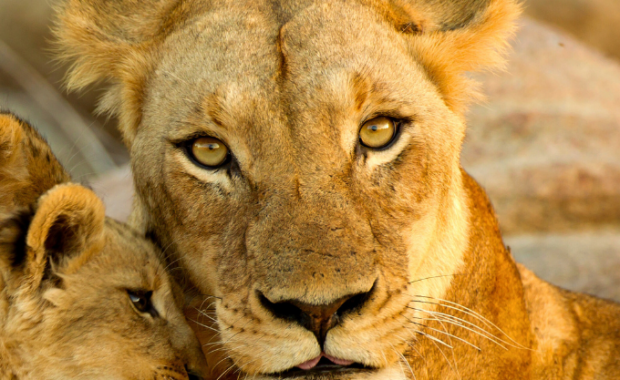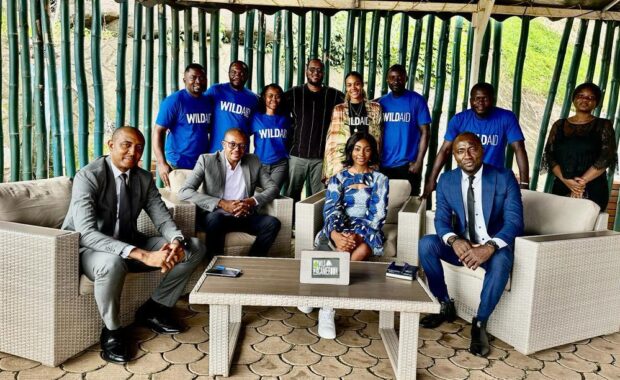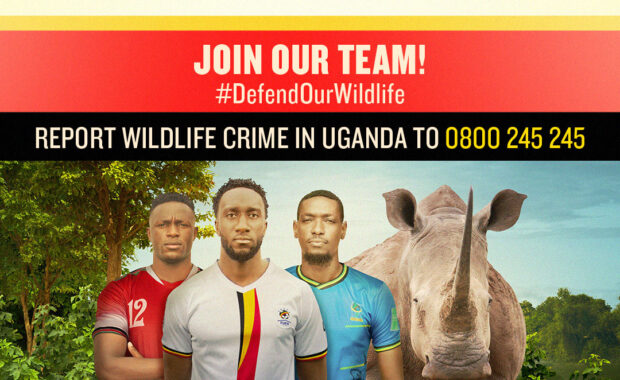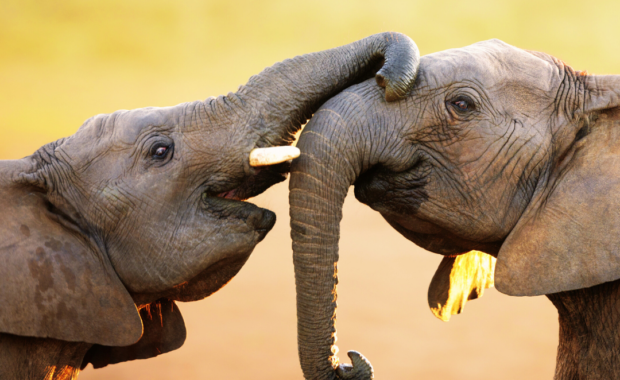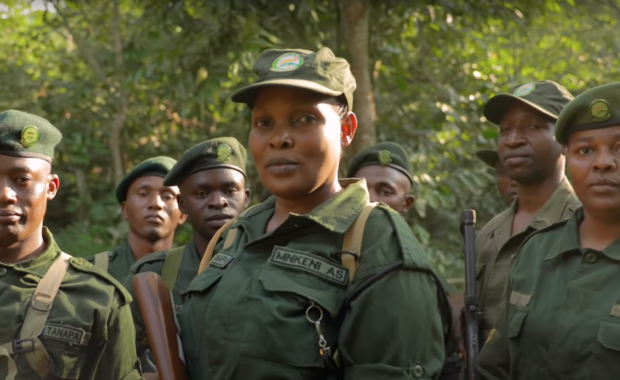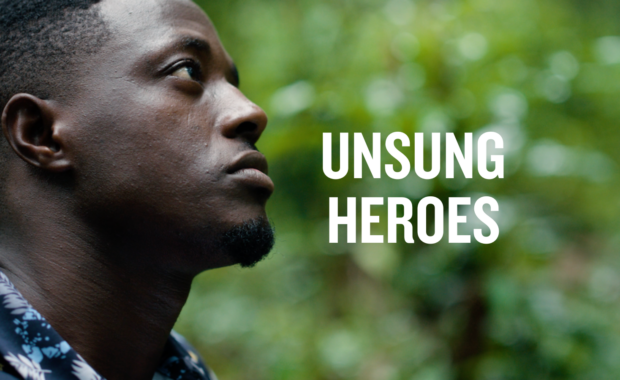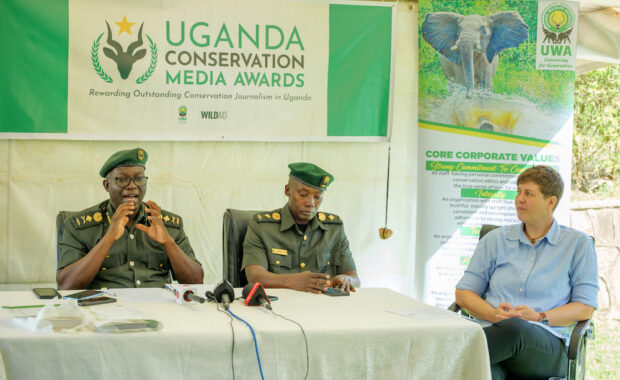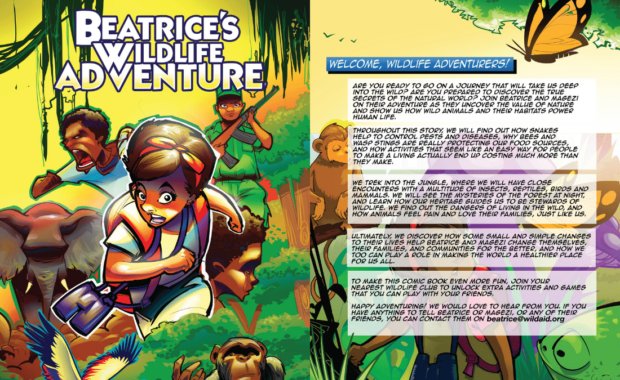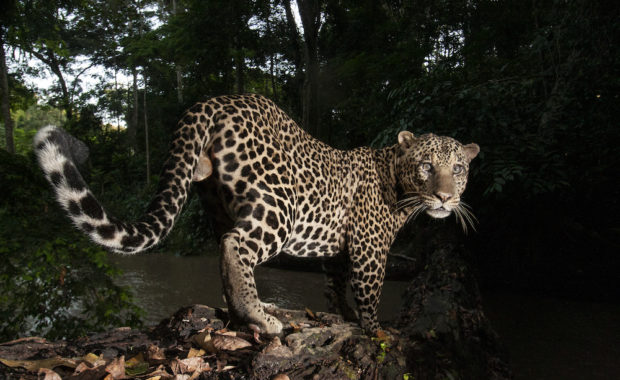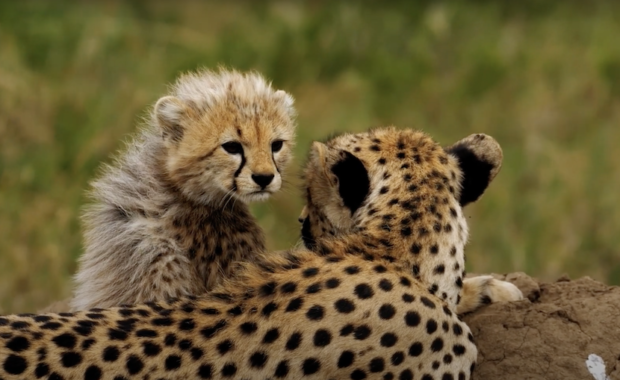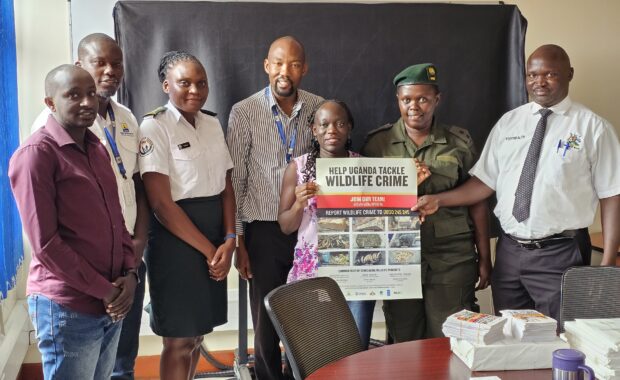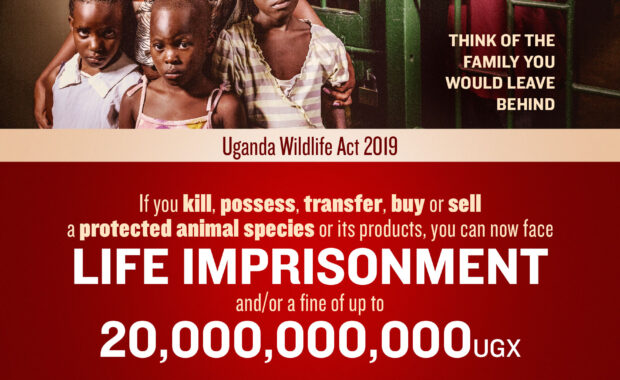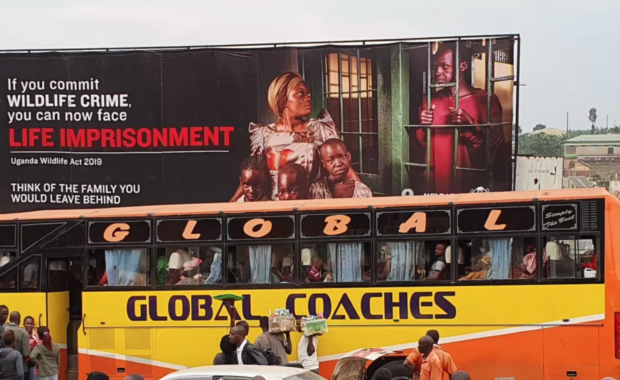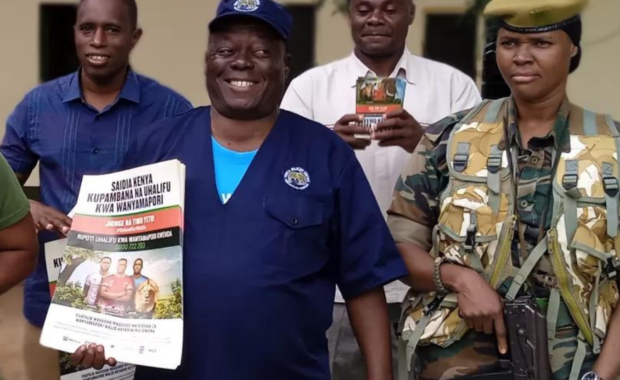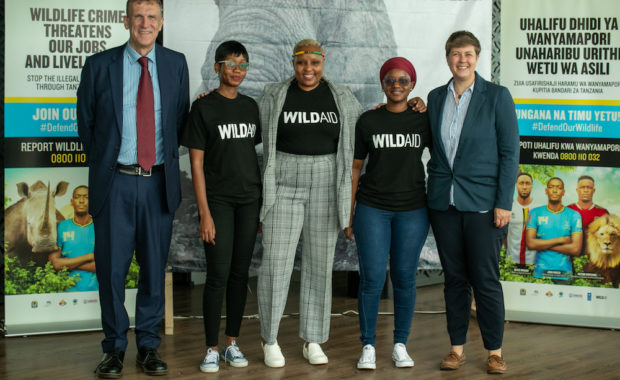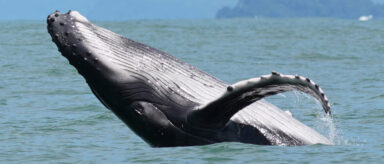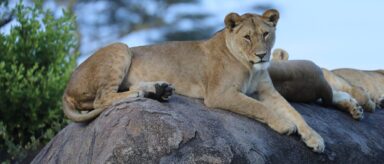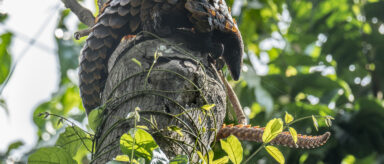Ending wildlife trafficking, curbing urban demand for bushmeat
In Africa, WildAid’s wildlife program aims to end the poaching and trafficking of wildlife products, and reduce urban demand for bushmeat, especially of protected and endangered species.
In East Africa, our programs have successfully raised awareness of the economic, environmental and cultural benefits that wildlife brings, inspiring the public and key stakeholders to play a role in preserving the continent’s natural heritage for future generations.
Our award-winning documentary Tanzania: Land of the Lion (Taifa La Simba) highlighted the remarkable achievements made by Tanzanians in protecting lions, as well as the crucial role of community conservation efforts in preserving the balance between humans and wildlife. It has already been shown dozens of times on ITV Tanzania and attracted many millions of viewers.
- 27%
The decline in urban pangolin meat consumption in Cameroon since 2022. - 91%
Ugandans who said our campaign had influenced them to report wildlife crime - 94%
young readers of Beatrice’s Wildlife Adventure inspired to share conservation information with family and friends
Making an impact
In Uganda, we partnered with the Uganda Wildlife Authority to raise awareness about the 2019 Uganda Wildlife Act, a vitally important piece of legislation that sets out comprehensive guidelines to safeguard the country’s natural resources, while dramatically increasing the penalties for wildlife crime. By the end of our campaign, two-thirds of Ugandans said they had seen or heard information about the new law, and 91% of those who saw the campaign said it would influence them to report wildlife crime.
In East Africa, WildAid worked with the United Nations Development Programme (UNDP) to raise awareness amongst workers in the cargo shipping sector about wildlife crime and wildlife trafficking, about why it is important, and what they can do about it. Port workers overwhelmingly said the campaign had increased their pride in their country’s wildlife, and inspired them to take firm action to stamp out wildlife trafficking. The campaign has since been expanded to major border posts in the region. The resulkts were dramatic:
- 97% of port workers are more likely to report wildlife crime as a result of the campaign.
- 99% of port workers said that the campaign increased their sense of pride in their country’s wildlife.
In West and Central Africa, Wild Aid’s campaigns have focused on curbing urban demand for bushmeat, especially for protected and endangered species.
Our greatest effort and impact has come in Cameroon, the primary source of pangolin scales trafficked to Asia and a major domestic consumer of pangolin meat. In 2022, WildAid launched its “Say No to Pangolin Meat” campaign in Cameroon, led by some of the country’s legendary football stars, most popular musicians and by traditional tribal leaders from around the country.
The campaign has already made significant progress. Over 60% of urban Cameroonians are now aware of legislation banning the capture and killing of pangolins—more than double the number in 2022. Two-thirds of city and town dwellers now support the protection of pangolins, another sharp jump since the campaign began.
Nearly 60% of respondents to our 2024 survey said they had seen the campaign, and one-in-three said it had convinced them to stop eating pangolin meat or to eat less. In the cities and towns of Yaoundé, Douala, Ebolowa, and Mbalmayo, the number of people who said they consume pangolin meat once a month or more frequently fell to 10.3% in 2024, down from 14.1% in 2022. That’s a decline of 27%.
WildAid has also conducted extensive campaigns to reduce demand for illegal bushmeat in Nigeria and Gabon.
Raising conservation awareness
WildAid also promotes conservation awareness across Africa, producing short documentary films and longer television shows spotlighting the important issues facing the natural world and celebrating the Unsung Heroes of the conservation movement.
Our Unsung Heroes films have already won several awards and been shown at film festivals across the world.
In Nigeria, we partnered with ARISE News to produce Go Wild, a weekly series of short documentaries on conservation, and in Cameroon we have partnered with Vision 4 to produce Wild Cameroon, a 45-minute monthly debate show on some of the country’s major environment challenges. These series have brought conservation, nature and the environment into urban living rooms on a regular basis in these two countries for perhaps the first time.
In Uganda in 2022, we published Beatrice’s Wildlife Adventure, a full-colour 28-page comic book and conservation education resource, aimed at educating younger audiences about conservation and inspire them to engage with their own communities. It has inspred tens of thousands of young people to believe they can play a role in preserving Africa’s natural heritage.


